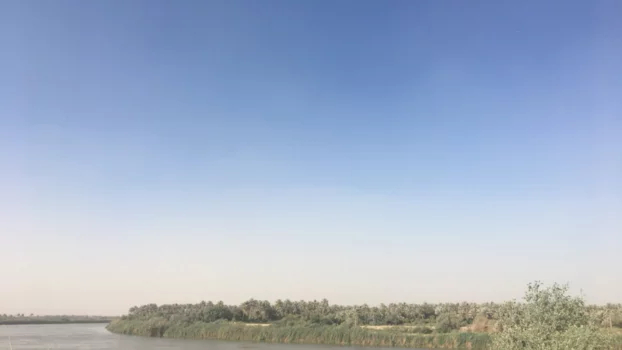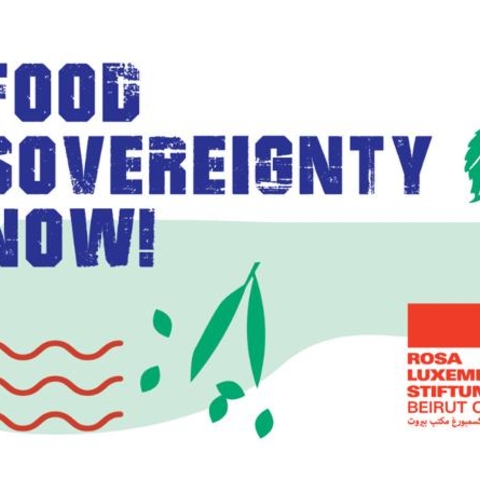War and Agriculture in Iraq and Kurdistan
Peasants in the region continue to suffer from the impacts of conflicts both old and new.
War and imperial violence have not only shaped society and the political structures in Iraq, but have an impact on contemporary agricultural relations. Agriculture and the reproductive labour performed by farmers in Kurdistan has historically played a major role in sustaining resistance to the former Ba’ath regime of Saddam Hussein. Whether in central Iraq or Kurdistan, war continues to have devastating consequences for the security of peasants.

Agriculture and Resistance to the Ba’athist Regime
Ayshe, a farmer from Dohuk province, recounts how Kurdish and Iraqi opposition forces visited her village in the 1990s: “Almost every evening, different Peshmerga [the Kurdish word for fighters opposing Saddam Hussein’s regime] would knock on the door. We brought them food, offered them places to sleep, and sometimes washed their clothes.”
Many villages in Kurdistan are nearly inaccessible to the Iraqi army due to their location near mountain ranges. The downside is that food is hard to come by. Most of it was home-grown. Other supplies, such as tea and sugar, were smuggled into the villages by women like Ayshe from the cities.
The 1990s were characterized not only by resistance to the Ba’athist regime, but also by a period of UN-sponsored sanctions against Iraq, which continued until the fall of Saddam Hussein in 2003. These sanctions had grave consequences not only for agriculture but also the population as a whole: 1.7 million Iraqis, including 500,000 children under the age of 5, died as a result of deficiencies in the food system. UNICEF reports that one million children were chronically malnourished.
Figures like these are part of the reason why this war is often referred to as the “invisible war”. The introduction of the Oil-for-Food Programme in 1997 provided some amount of relief. Food was imported from abroad, exchanged for Iraqi oil, and then distributed to families in Iraq. Yet at the same time, it meant that Iraqi farmers had less success selling their locally grown produce, further depreciating domestic agriculture.
The sanctions introduced during this period created the conditions for today’s agricultural and food systems, in which imported goods are often much cheaper than locally grown food. This dependency on imports demonstrates how urgent it is to establish food sovereignty in the region, and how building local agricultural and food systems can provide the basis for a self-determined way of life.
Al-Qaeda in Central Iraq, Turkish Bombs in Kurdistan
The “invisible war” of the sanctions phase continued after 2003 in subsequent wars that continue to this day. Ahmed, a farmer from Yousefiya, a town south of Baghdad, tells the story of how al-Qaeda took control of parts of Yousefiya in 2007: “We were forced to take the food we had grown to the big markets to sell it. However, all the routes to get there were controlled by the Mahdi Army [led by Muqtada al-Sadr, currently a member of parliament]. If we had travelled along them, we would have been murdered or kidnapped.” This made it very difficult to sell the harvest during this period.
The problem repeated itself in 2014, when the al-Qaeda successor organization, the Islamic State (IS), made its way into Iraq. This time, however, the people in Yousefiya were prepared for a new wave of violence: “Many people had experienced the civil war after the US invasion and the violence of al-Qaeda. When IS showed up, there was no shortage of young people in Yousefiya to stand up to them and successfully defend the region. The IS had established a presence in the neighbouring region, but was not able enter Yousefiya”, says Ruzgar, also a farmer and political activist from Yousefiya.
Throughout this period of time, many people fled, were kidnapped, or were even killed. As a result, almost all local agricultural production halted entirely.
To this day, agricultural work remains dangerous, even in Iraqi Kurdistan. Almost every spring the Turkish army carries out military operations against the Kurdistan Workers’ Party (PKK), which uses the Qandil Mountains in Iraqi Kurdistan to retreat.
“This creates a climate of fear. A few days ago, children were killed at an ordinary village festival”, says Araz, a farmer from the Dohuk region. The local security forces either offer little protection for the people, sometimes even collaborating with their Turkish counterparts, who have established a dozen military bases in Iraqi Kurdistan. “Every day here there are drones circling overhead and bombs dropping”.
Turkey’s Dam Policy and Water Shortages in Iraq
Turkey’s policies in the region are a threat not only to security and agriculture in Kurdistan but also to the rest of Iraq, where water is increasingly scarce. For example, the construction of the Ilısu dam in the Kurdish areas of Turkey directs a scant 45 percent of the water from the Tigris into Iraq.
“There have only been three days in the last eight months in which we have been allowed to take water from the Tigris. Instead of putting pressure on the dam policies implemented by Turkey and Iran, the Iraqi government is putting pressure on the farmers”, explains Ruzgar.
For the people of Iraq and Kurdistan, this means that water is becoming scarce, that the marshlands in the south are at risk of drying out, and that with temperatures reaching 50°C in the summer, no electricity, and the almost weekly sandstorms, it is impossible to perform agricultural work outdoors.
Despite Iraq’s violent history and the current challenges that characterize its political situation, farmers remain active and form the backbone of agriculture in Iraq and Kurdistan. Apart from the fact that there are few job opportunities in the cities, farmers’ conception of food sovereignty in the region today is based on close ties to their own land, historical resistance struggles, and the defence of their region from various military forces.
Translated by Hunter Bolin and Eve Richens for Gegensatz Translation Collective.

